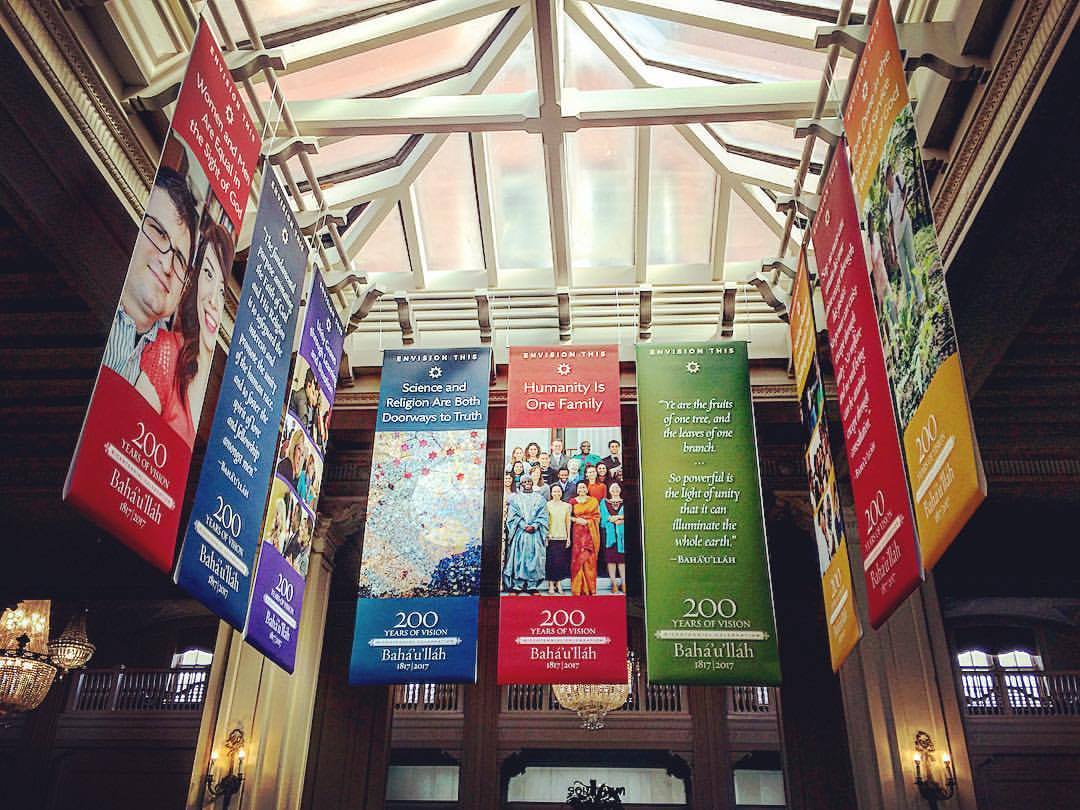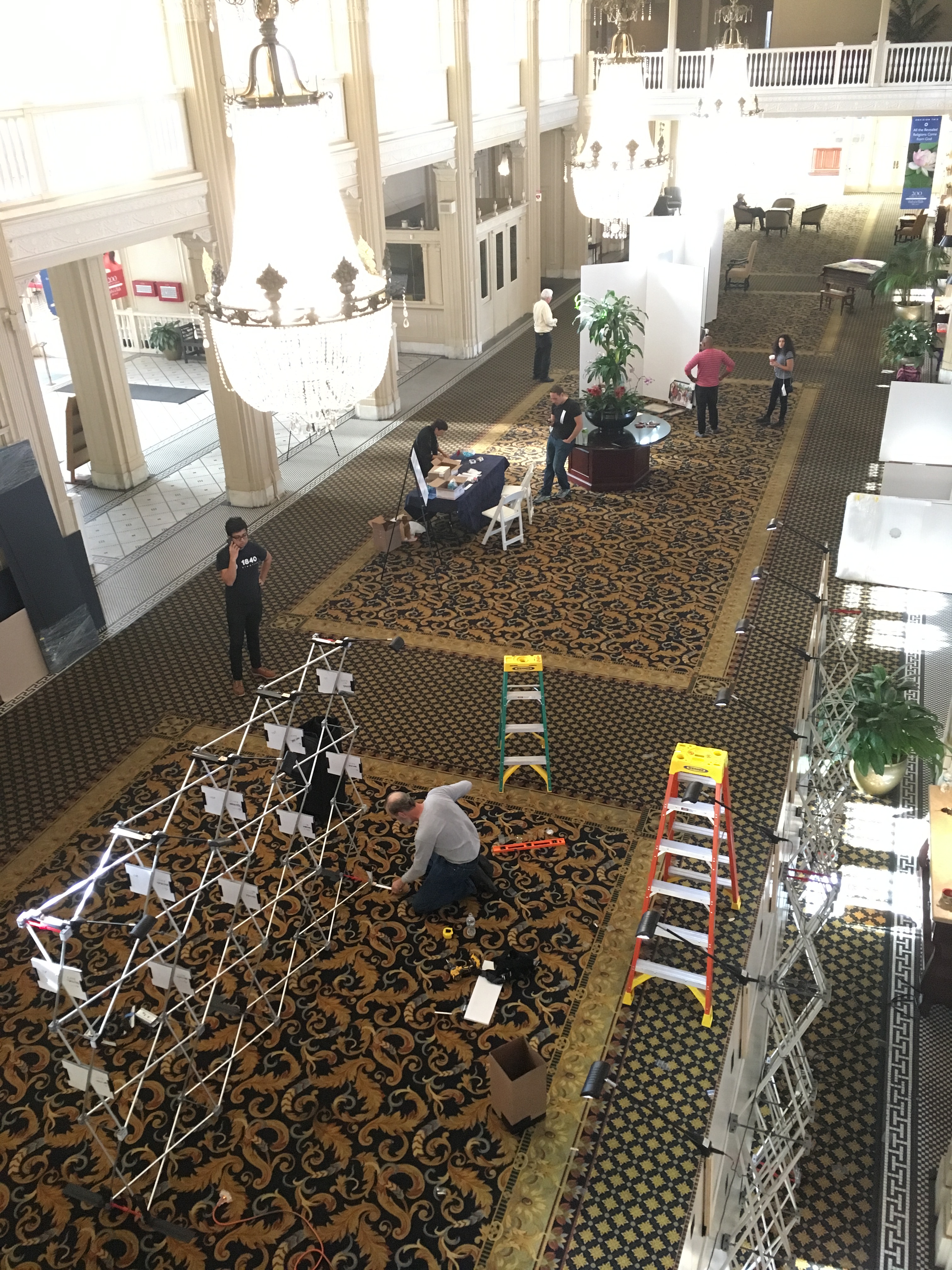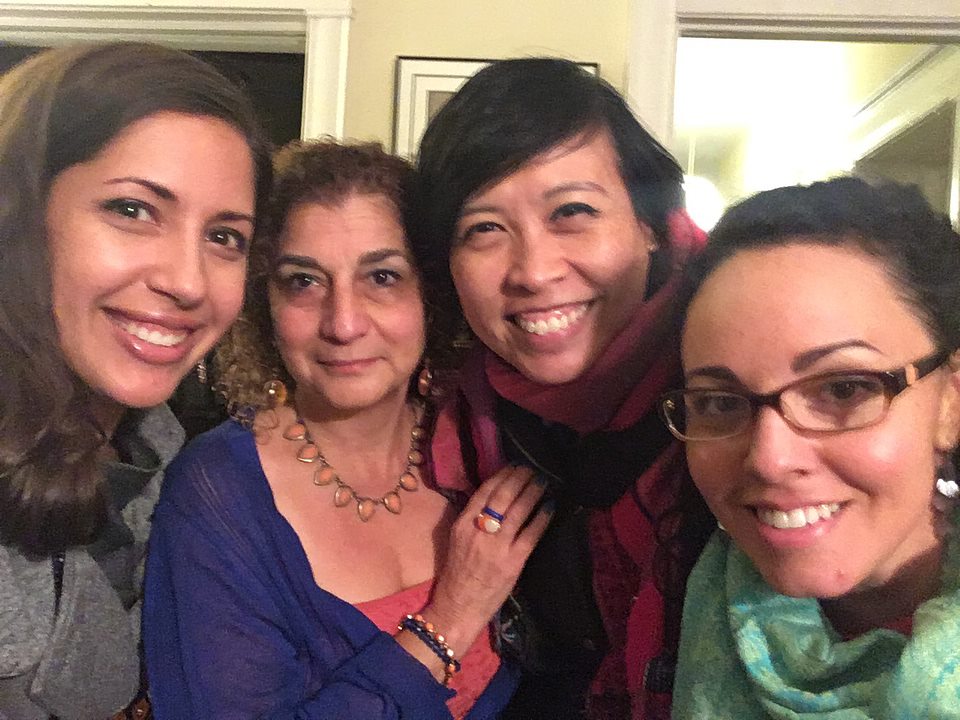 In parts 1 and 2 of the series, I reviewed the importance of Feast and the times and locations of Feast, and now to look at the guidance about the structure of Feast.
In parts 1 and 2 of the series, I reviewed the importance of Feast and the times and locations of Feast, and now to look at the guidance about the structure of Feast.
“This institution, established by BahaÌ’u’llaÌh, has been described by the Guardian as the foundation of the new World Order. The National Spiritual Assembly understands that it is incumbent upon every believer, unless ill or absent from the city, to attend each of these Feasts.
In a general letter issued to Local Spiritual Assemblies several years ago, it was pointed out that the Guardian instructs that the Nineteen Day Feast be held according to the following program: the first part, entirely spiritual in character, is devoted to readings from BahaÌ’iÌ Sacred Writings; the second part consists of general consultation on the affairs of the Cause, at which time the Local Spiritual Assembly reports its activities to the community, asks for suggestions and consultation, and also delivers messages received from the Guardian and the National Assembly. The third part is the material feast and social meeting of all the friends.”
(Statement by the National Spiritual Assembly of the Baha’is of the United States)
There are three distinct portions of Feast, and they should stay in that order. I was struck by the part about “eloquent, uplifting talks”, which I had not heard about until a few years ago.
“Even though the observance of the Feast requires strict adherence to the threefold aspects in the sequence in which they have been defined, there is much room for variety in the total experience. For example, music may be introduced at various stages, including the devotional portion; ΑÌbdu’l-BahaÌ recommends that eloquent, uplifting talks be given; originality and variety in expressions of hospitality are possible; the quality and range of the consultation are critical to the spirit of the occasion. The effects of different cultures in all these respects are welcome factors which can lend the Feast a salutary diversity, representative of the unique characteristics of the various societies in which it is held, and therefore conducive to the upliftment and enjoyment of its participants.”
(Letter from the Universal House of Justice)
The guidelines below delineate some simple, yet very helpful guidelines about what steps need to be taken to prepare for Feast. In many communities, individuals can offer to host Feast and coordinate devotions. What an opportunity to change the nature of Feast, to uplift everyone and bring joy!
“If the Feast is to be properly experienced, beyond an understanding of the concept must also be the preparation of it and the preparation for it. Although the Local Spiritual Assembly is administratively responsible for the conduct of the Feast, it often calls upon an individual or a group of individuals to make preparations— a practice which is consonant with the spirit of hospitality so vital to the occasion. Such individuals can act as hosts and are sometimes concerned with the selection of the prayers and readings for the devotional portion; they may also attend to the social portion. In small communities the aspect of personal hospitality is easy to carry out, but in large communities the Local Spiritual Assemblies, while retaining the concept of hospitality, may find it necessary to devise other measures. Important aspects of the preparation of the Feast include the proper selection of readings, the assignment, in advance, of good readers, and a sense of decorum both in the presentation and the reception of the devotional program. Attention to the environment in which the Feast is to be held, whether indoors or outdoors, greatly influences the experience. Cleanliness, arrangement of the space in practical and decorative ways — all play a significant part. Punctuality is also a measure of good preparation.
To a very large extent, the success of the Feast depends on the quality of the preparation and participation of the individual. The beloved Master offers the following advice: “Give ye great weight to the Nineteen Day gatherings, so that on these occasions the beloved of the Lord and the handmaids of the Merciful may turn their faces toward the Kingdom, chant the communes, beseech God’s help, become joyfully enamoured each of the other, and grow in purity and holiness, and in the fear of God, and in the resistance to passion and self.
Thus will they separate themselves from this elemental world, and immerse themselves in the ardours of the spirit.””
(Letter written on behalf of the Universal House of Justice, dated August 27, 1989, to the followers of BahaÌ’u’llaÌh)
The part about punctuality made me laugh ruefully. There are so many jokes about this in Baha’i communities but honestly, it really bothers me when we make it a habit of being late to gatherings! Things happen, of course, on an individual basis, but as a community we should have a higher standard of being on time.
During the devotional part of the Nineteen Day Feast any part of the writings of the Báb, Bahá’u’lláh and the Master can be read, also from the Bible and Qur’an, as these are all sacred scriptures. This part of the meeting need not be confined to prayers, though prayers can and should be read during it.
(In a letter written on behalf of Shoghi Effendi)



